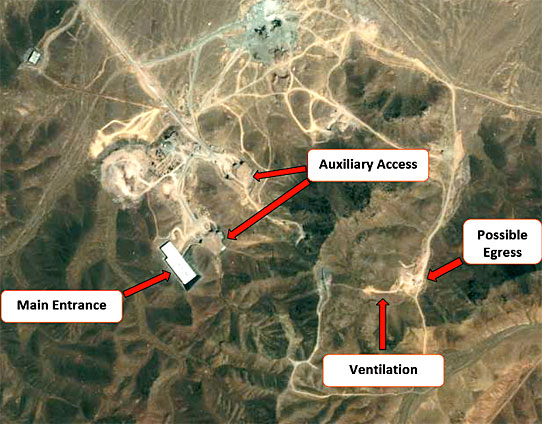If Leon Panetta meant what he said in his interview with CBS’s Scott Paley on Tuesday — I can’t believe Panetta’s remarks weren’t the lead story in every newspaper in America Wednesday — the United States and Israel will be at war with Iran and its transnational surrogate Hezbollah by the autumn of 2012. (Here are Panetta’s unequivocal words if you missed them.)
Hezbollah has established terror cells throughout the United States and Europe, and the bombing of Iranian nuclear facilities presumambly would activate them (see Lighting Out of Lebanon, Random House, 2005 .) In other words, it would be very unlikely that the bombing of Iran would be a standalone event.
Such a development would radically alter the nature of the 2012 presidential campaign. And that change in focus would begin to occur well before any bombing occurred. There is always rhetorical and logistical build up to military action (The President would need to sell the thing to his countrymen and to The Arab League.)
Only one Republican candidate has come out in opposition to bombing Iran, and that’s neo-isolationist Ron Paul. And only one Republican candidate has the kind of committed support necessary to run a third-party candidacy, Ron Paul. The Texas congressman has legions of young libertarians available to do the hard work of getting him on the ballot in all or most of the 50 states.
If Mr. Paul were to run a third-party candidacy, the question then is “who would he draw support from?” The immediate assumption would be the Republican candidate. But as the single anti-war candidate in the field, Mr. Paul might also tap into pacifistic Democrats. On foreign policy issues, Mr. Paul would be running to President Obama’s left (and possibly to the right of the Republican on fiscal issues.)
Ron Paul is a throw-back to a pre-World War II Republican Party. He is a small-government conservative who appeals to young voters alarmed by the debt being heaped upon them, and a mind-your-own-business isolationist who appeals to conscription-aged young people tired of war. It’s an interesting combination, and one with the potential to ignite on college campuses.
One wouldn’t expect this subset of voters to represent anything nearing a plurality, but it could significantly alter the national conversation and the 2012 elections.
Just thinking aloud.

Leave a Reply